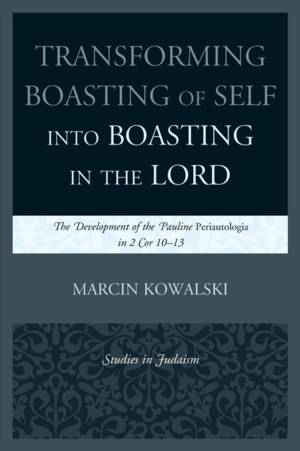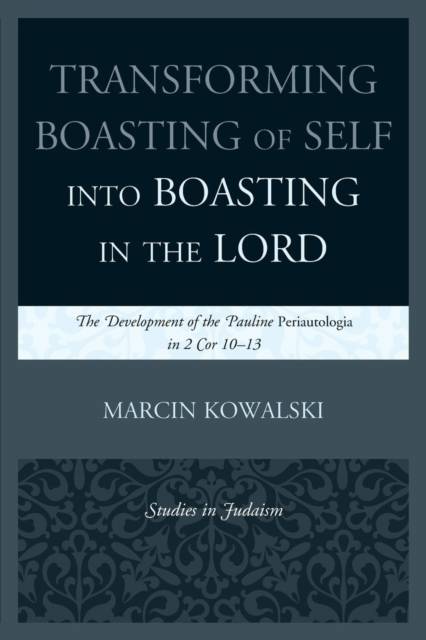
- Afhalen na 1 uur in een winkel met voorraad
- Gratis thuislevering in België vanaf € 30
- Ruim aanbod met 7 miljoen producten
- Afhalen na 1 uur in een winkel met voorraad
- Gratis thuislevering in België vanaf € 30
- Ruim aanbod met 7 miljoen producten
Zoeken
Transforming Boasting of Self into Boasting in the Lord
The Development of the Pauline Periautologia in 2 Cor 10-13
Marcin Kowalski
€ 98,45
+ 196 punten
Omschrijving
This book uses rhetorical analysis to illuminate one of the most fascinating and complicated speeches by Saint Paul: 2 Cor 10-13. The careful crafting of his discourse based on Christological principles ultimately speaks for qualifying it as a self-praise speech (periautologia) with a pedagogical, not defensive, purpose.
Specificaties
Betrokkenen
- Auteur(s):
- Uitgeverij:
Inhoud
- Aantal bladzijden:
- 352
- Taal:
- Engels
- Reeks:
Eigenschappen
- Productcode (EAN):
- 9780761861232
- Verschijningsdatum:
- 12/07/2013
- Uitvoering:
- Paperback
- Formaat:
- Trade paperback (VS)
- Afmetingen:
- 152 mm x 226 mm
- Gewicht:
- 539 g

Alleen bij Standaard Boekhandel
+ 196 punten op je klantenkaart van Standaard Boekhandel
Beoordelingen
We publiceren alleen reviews die voldoen aan de voorwaarden voor reviews. Bekijk onze voorwaarden voor reviews.








